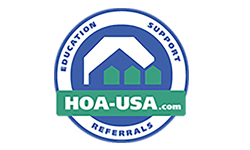Simply put, homeowners should have access to appropriate association books and records, and association boards must allow homeowners access to appropriate community records, when requested.
Your legal rights – Since almost every homeowner association is organized as a non-profit corporation, state general statutes are the first place that a homeowner might look to find the specific laws that require access to financial records. Most states also have other general statutes that are specific to homeowner associations and access to records. And finally, association documents such as the bylaws may also provide the basis for access to financial records. For references to these statutes, check the “HOA Laws” section of our website.
What records are accessible? – At a minimum, members should have access to the current budget, an income and expense statement, a balance sheet and a statement of their account. Keep in mind that the association board has a fiduciary responsibility to protect residents’ privacy so don’t ask for a list of homeowners who are delinquent, the bank statement or a copy of the association’s QuickBooks file.
Who has the records? – Ultimately the board is responsible for maintaining and providing access to financial records, however, this may be the developer if the association has not transitioned to resident control. The board may also delegate this responsibility to a management company. When requesting financial records, begin with a phone call or email to the board or management company. You should check to see if you need to put your request in writing or if fees are associated with your request. A friendly request will go a lot further than a demand and accusation.
Oversight versus nit-picking – Every homeowner has a responsibility to monitor the financial health of their homeowner association. Look for the following:
- Proper notice of the annual meeting and the budget ratification meeting.
- Opportunities for homeowners to address the board during the homeowner’s forum.
- Any major changes in expenses and revenues year over year.
- Overall delinquencies that exceed 5% of total assessments.
- Adequate reserves being set aside for major capital improvements.
- Annual audit, compilation or review by an independent financial professional (CPA).
Board members are volunteers. They cannot receive compensation and usually receive little appreciation. It is reasonable that their patience may be tested by a resident’s persistent scrutiny over minor expenditures. A resident with that level of oversight should be sincerely invited to serve on the board or the budget committee. Also, some boards have annual budgets in excess of a million dollars and some have budgets less than $20,000. Use common sense judgment that meets the test of oversight and not nit-picking and is appropriate for the size and scale of the association.
Something smells fishy – Perhaps the board is not providing regular reports, is awarding generous contracts without bids, has line item amounts in the budget that seem extreme, is not maintaining adequate reserves or is unresponsive to your requests for information. This is the time to be firm in documenting your requests and to take a more active role in your association’s business. Become involved, attend meetings, and offer to serve on a committee or the board. If all else fails, it’s time to actively support the election of new officers or talk with an attorney with expertise in association laws. Worst case is that your association is no longer holding meetings, cannot find volunteers to serve, is not collecting assessments, and no longer enforcing the covenants. Property values are likely to continue to decline and it’s time to move.

